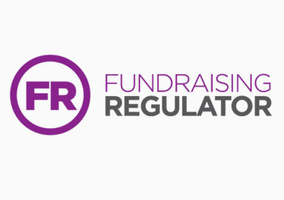A community interest company (CIC) that supports military veterans fundraised without the correct permissions and likely misled the public, an investigation has found.
Today, the Fundraising Regulator published its investigation into We R Blighty, which it has been investigating since July last year after receiving multiple complaints from the public, local authorities and other organisations.
Complaints related to whether the CIC, set up in 2022, had been carrying out street fundraising with the appropriate licences and permissions, and the behaviour of its fundraisers, described as “unprofessional and aggressive”.
In June, mid-investigation, We R Blighty’s directors pleaded guilty to several offences of unauthorised fundraising at City of London Magistrates Court and were fined.
The regulator found nine breaches of its Code of Fundraising Practice in total, including We R Blighty fundraising in public without the correct licenses and likely misleading the public by using fundraising materials suggesting a link with a well-known national veterans’ charity.
We R Blighty has accepted the regulator’s findings and is acting on its recommendations, the regulator reported.
Fundraising without licenses
In June 2024, the regulator met with We R Blighty’s founder and director Ben Mills to better understand its fundraising practices.
Mills told the regulator that the CIC used self-employed fundraisers and that employing veterans was one of his company’s charitable aims, adding that it faced challenges in obtaining fundraising licences.
Following the meeting and further public complaints, the regulator opened a formal investigation into the CIC.
During the investigation, the CIC told the regulator that legislation did not require it to have any licensing or permissions to fundraise in public.
However, the regulator later learned that the CIC “was regularly fundraising without local authority permission in Kent, and without permission from the Metropolitan Police across three sites in central London”.
Other code breaches
The regulator also found it was “more likely than not that donors could have been misled by confusing messaging or fundraising materials” from We R Blighty.
“This includes materials suggesting a link with a well-known national veterans’ charity, which the CIC has since confirmed it doesn’t work with,” its investigation report says.
“We were also concerned about the costings in some of the fundraising materials that the CIC couldn’t show good enough evidence for.
“There was also enough information available for us to conclude on balance that some fundraisers for the CIC acted in an aggressive and unprofessional way towards both potential donors and public officials.”
The regulator also found that there was not enough monitoring in place to ensure that We R Blighty’s fundraisers “kept to the code or procedures to review the arrangements in place to support compliance”.
It made several recommendations to the CIC, including reviewing its training materials to ensure it meets the standards required by fundraisers operating with the public and “urgently” creating a complaints policy to better manage fundraising concerns.
“The CIC has confirmed that it has accepted our findings and explained that it is taking steps to engage with our recommendations,” the report reads.
“We’ll continue to liaise with the CIC to ensure it is meeting our recommendations.”
Regulator: ‘CICs engaging in public fundraising must follow the code’
Gerald Oppenheim, chief executive of the Fundraising Regulator, said: “Our investigation into We R Blighty uncovered serious breaches of the Code of Fundraising Practice, including inappropriate fundraiser behaviour, an inadequate complaints process, and misleading the public.
“We welcome We R Blighty’s commitment to work with us to address these failings and to bring its fundraising in line with the standards expected across the sector.
“Following issues raised in this investigation, we’re working with relevant statutory bodies and regulators to ensure CICs engaging in public fundraising follow the code.
“This work is essential to protect the public, maintain trust in charitable giving, and safeguard the reputation of the fundraising sector.
“Strong, independent regulation helps ensure that fundraising is conducted responsibly, so donors can give with confidence and the charitable sector can continue to thrive.”
Nick Pope, chair of Cobseo, the Confederation of Service Charities, said his organisation has been in discussion with the CIC Regulator to highlight some concerns raised throughout the sector.
“We’re committed to further work to ensure that the regulator can do what they need to do to enhance public trust and ensure that they’re doing the good work that they have committed to do,” Pope told Civil Society.
“Whilst We R Blighty isn’t a member of Cobseo, the Confederation of Service Charities, as a membership organisation we bring together charities and organisations supporting the armed forces community.
“We have a robust due diligence process that all Cobseo members undergo where the Cobseo team checks a number of different elements of a charity's operations and organisation including their governance, communications, and finances, to try to ensure that they’re providing the best possible level of support to beneficiaries.”
We R Blighty: ‘Our fundraising approach aims to be ethical and transparent’
A spokesperson for We R Blighty said they acknowledged the Fundraising Regulator’s findings and welcomed the opportunity to strengthen the CIC’s systems.
“The issues identified relate to historical activity prior to internal reforms introduced in mid-2025,” they told Civil Society.
“Since then, We R Blighty has implemented enhanced training and supervision for representatives, a formal complaints and monitoring process, standardised solicitation statements, and clearer materials that make our status as a CIC explicit.
“During the investigation, we weren’t presented with verifiable evidence of aggressive behaviour by our representatives, and no mystery-shopper observations were undertaken. Regardless, we’ve reinforced conduct expectations with de-escalation training and a three-stage disciplinary policy to ensure best practice at all times.
“Our fundraising approach aims to be ethical and transparent 50% of each magazine sale goes directly to veteran support at the point of sale, enabling immediate impact for accommodation, food and mental-health support, with the remaining 50% covering delivery costs of the fundraising agency.
“We remain committed to full cooperation with the regulator as they with us and to continuous improvement so the public can give with confidence and veterans receive timely, practical help.”











